Adapting participatory epidemiology to estimate the incidence of human diseases in Moroto District, Karamoja, Uganda
Livelihoods Assessment
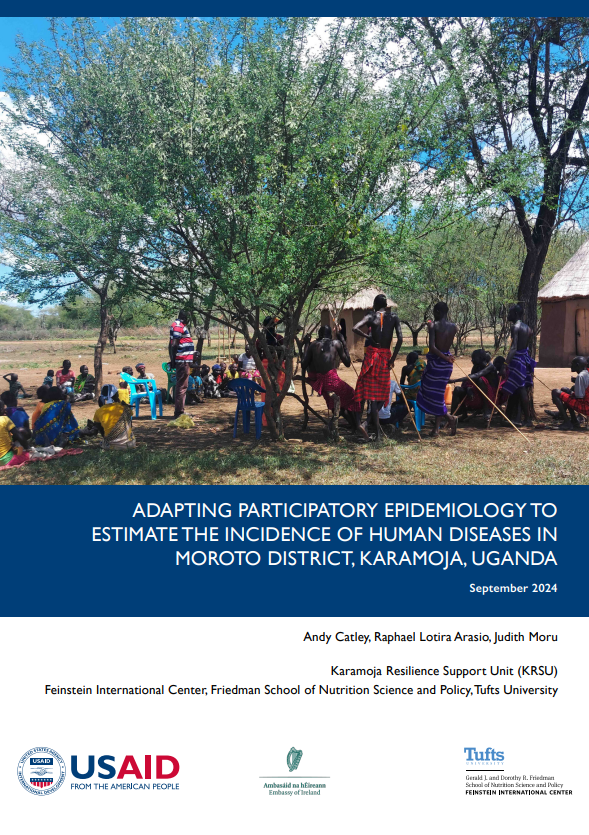
Adapting participatory epidemiology to estimate the incidence of human diseases in Moroto District, Karamoja, Uganda
This study explored the use of participatory epidemiology (PE) to estimate the annual incidences of human diseases in Karamoja, Uganda, with emphasis on diseases associated with water. Adapted PE methods were used successfully to estimate disease incidences in young children and adults, and revealed a rich knowledge on the clinical signs and causes of diseases. The report concludes that PE could be useful for overcoming some of the spatial limitations of the health surveillance system in Karamoja, and the temporal limitations of bi-annual food security and nutrition assessments.
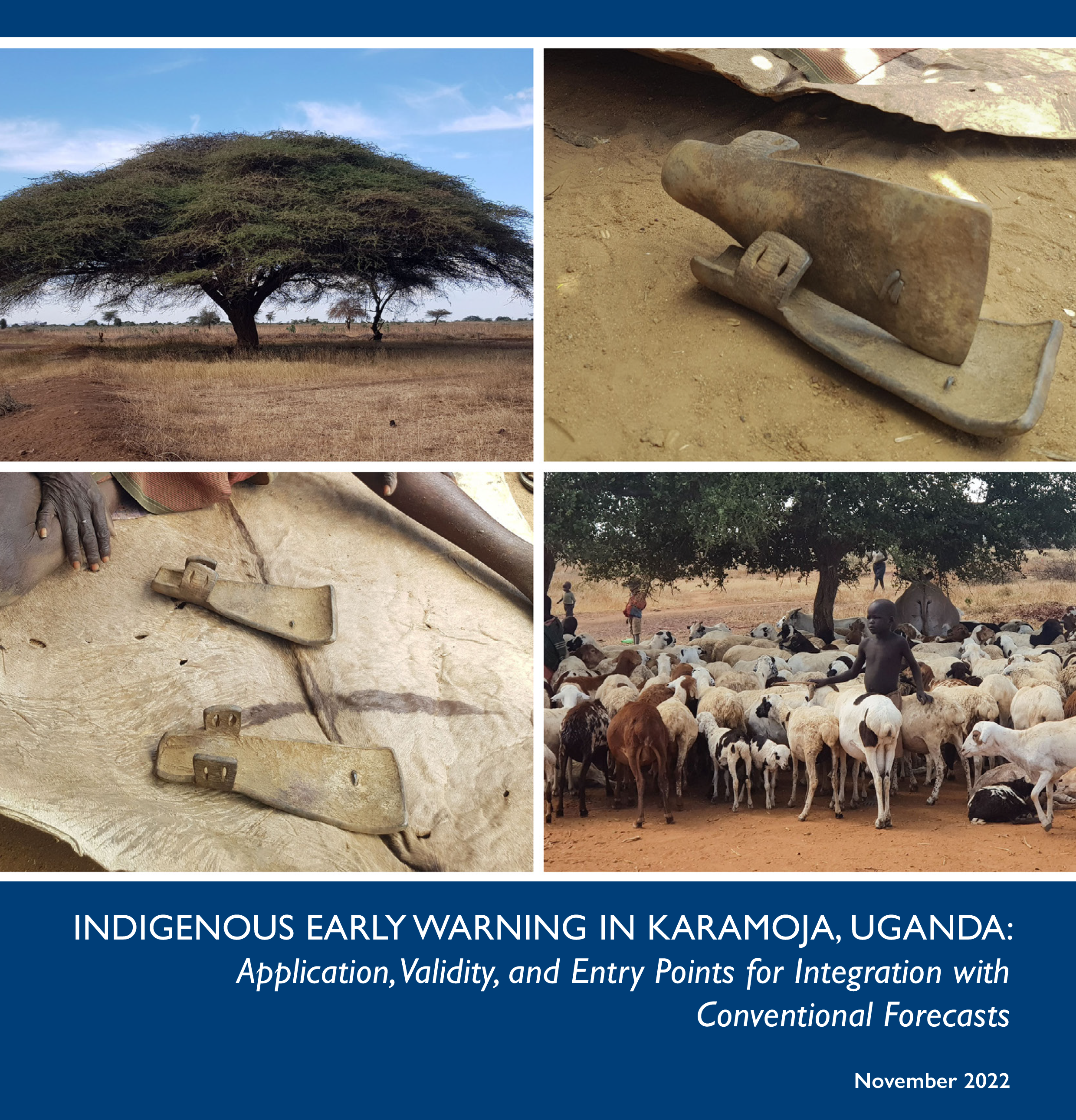
INDIGENOUS EARLY WARNING IN KARAMOJA, UGANDA
An effective early warning system (EWS) is a prerequisite for timely response to avert and mitigate the impacts of disasters that affect pastoralist and agro-pastoralist communities. Whereas there exist various forms of EWS in Uganda, the main concerns have been whether the early warning information is timely, accurate, accessible, and elicits early action. These questions point at inefficiencies in the conventional EWS in the country and the importance of the indigenous early warning system (IEWS) used by rural communities. These indigenous systems are especially important where conventional early warning information is inaccessible or coarse and therefore not suitable for guiding location-specific decisions.
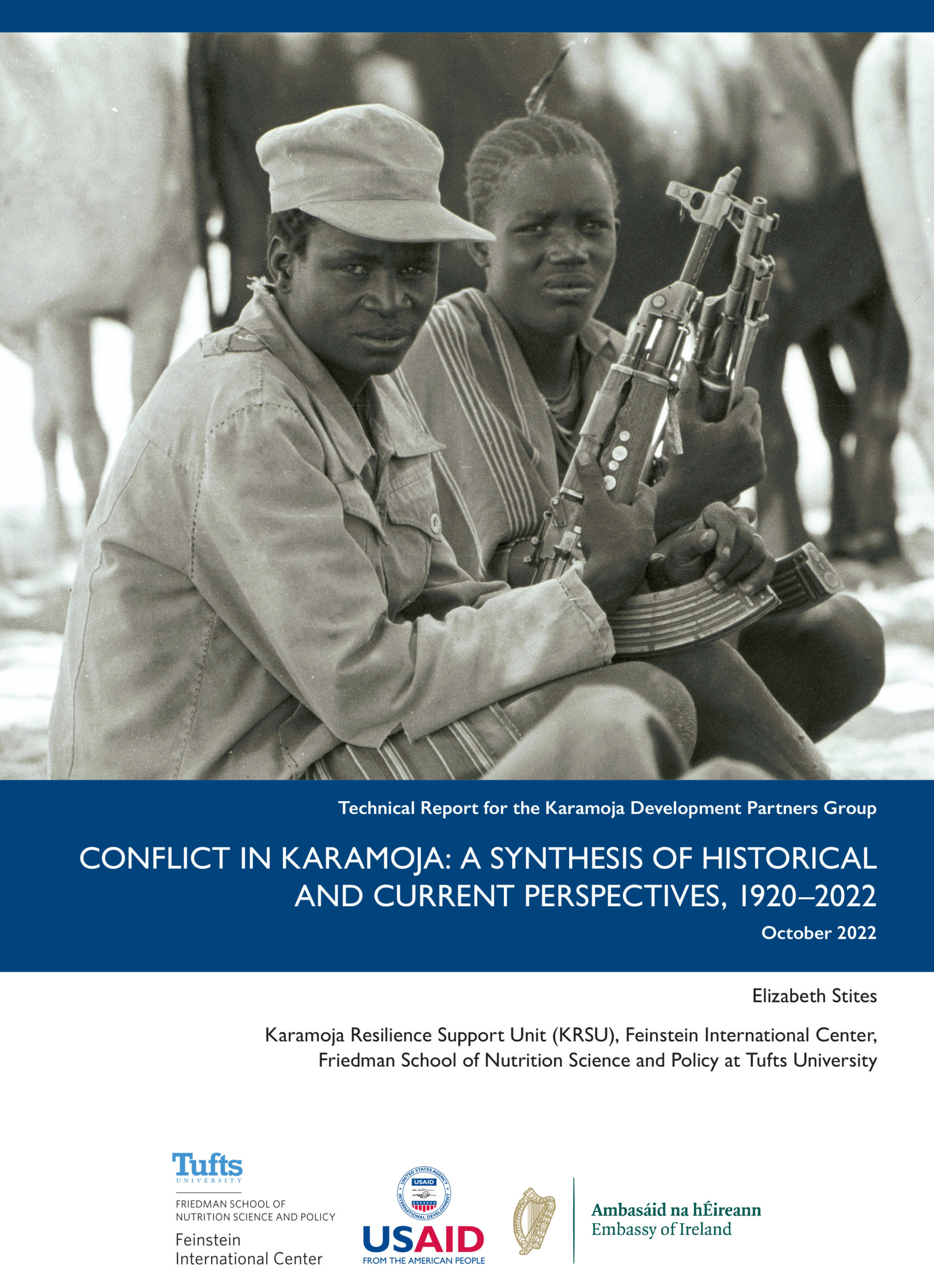
Conflict in Karamoja: A Synthesis of Historical and Current Perspectives, 1920-2022
This knowledge synthesis focuses on violent conflict in the Karamoja sub-region of northeastern Uganda. While violence and conflict both can and do take many forms, this synthesis takes as its focus the phenomenon of cattle raiding and associated violence. This knowledge synthesis briefly describes the concept and role of cattle raiding within pastoral societies in East Africa and the Karamoja Cluster and then examines different historical periods and experiences of violent conflict associated with cattle raiding within the Karamoja sub-region.
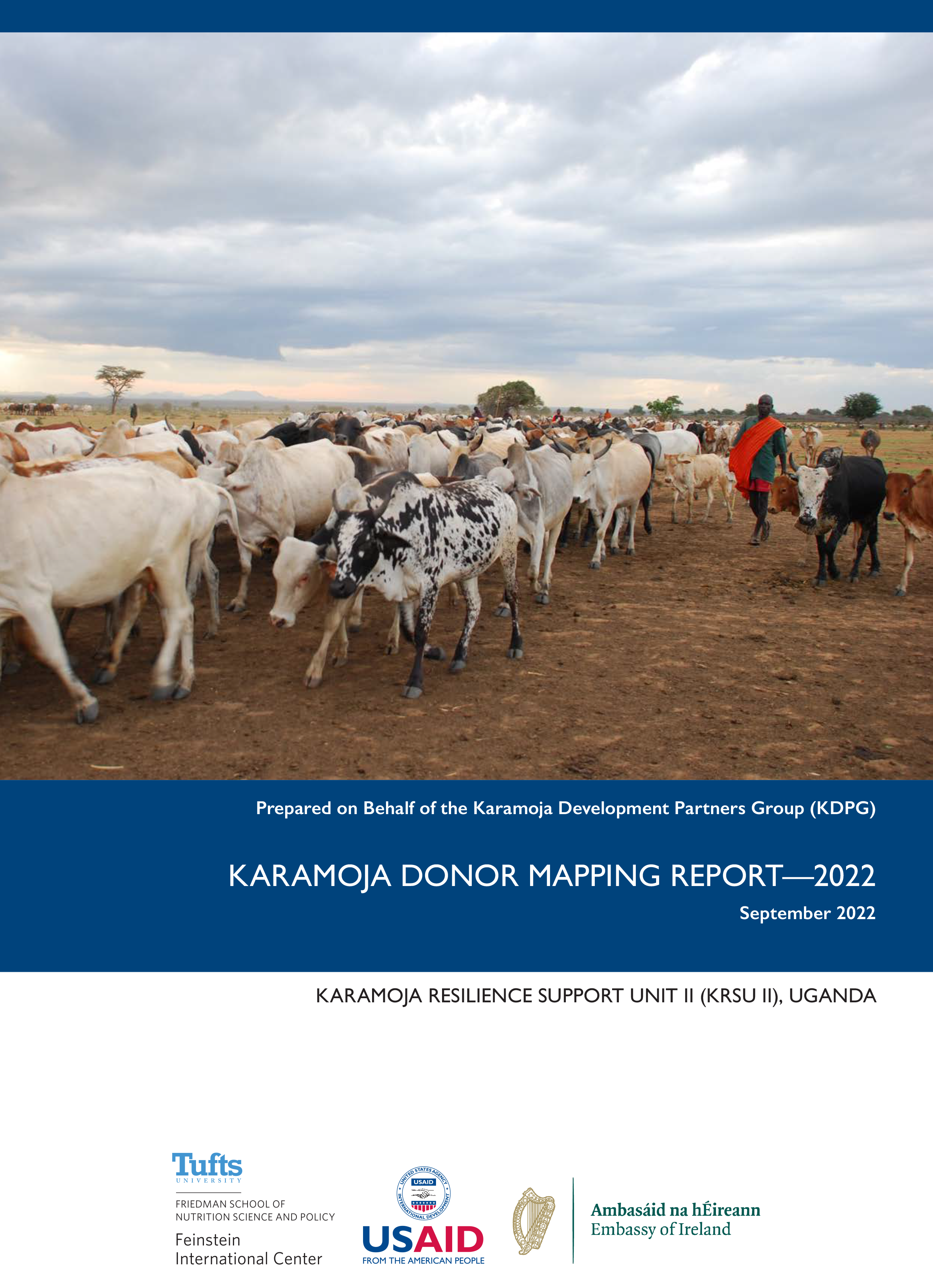
Karamoja Donor Mapping Report
This report summarizes planned humanitarian and development activities of major donors in the Karamoja sub-region
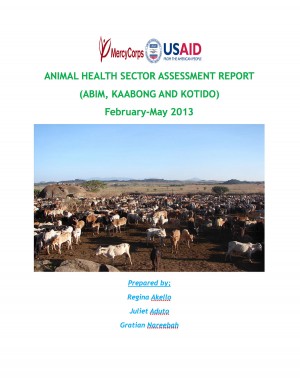
Animal Health Sector Assessment Report (Abim, Kaabong, and Kotido)
The Animal Health sector assessment was conducted by the team of 3 members; Gratian, Juliet and Regina in Abim, Kotido, Kaabong and outside Karamoja in Lira, Soroti and Mbale to understand the systemic functionality; major players, development actors, support functions, loopholes and challenges, actor/agency relations, drug supply chain as well as the formal and informal rules governing the sector.
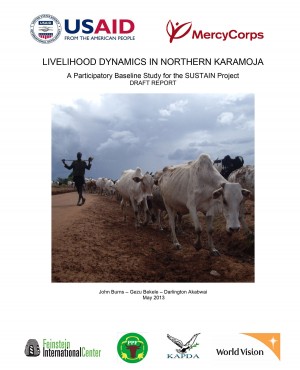
Livelihood Dynamics in Northern Karamoja: A Participatory Baseline Study for the SUSTAIN Project
This report documents the findings of a livelihoods assessment carried out as part of the USAID funded Sustainable Transformation in Agriculture and Nutrition (SUSTAIN) project being implemented by Mercy Corps and partners in the Karamoja sub-region of Northeastern Uganda. The overall goal of the SUSTAIN project is to promote peace and food security through three complementary strategic objectives aimed at (1) strengthening livelihoods, (2) improving nutritional outcomes for children under two and (3) building local capacities for conflict mitigation.The project is being implemented in three districts of Northern Karamoja, Abim, Kaabong and Kotido. The objective of this particular study is to inform implementation and collect baseline impact indicators for the activities under objective # 1. Under this objective (livelihoods strengthening)the project aims to improve productivity, market access, marketing behaviors and the overall business environment.